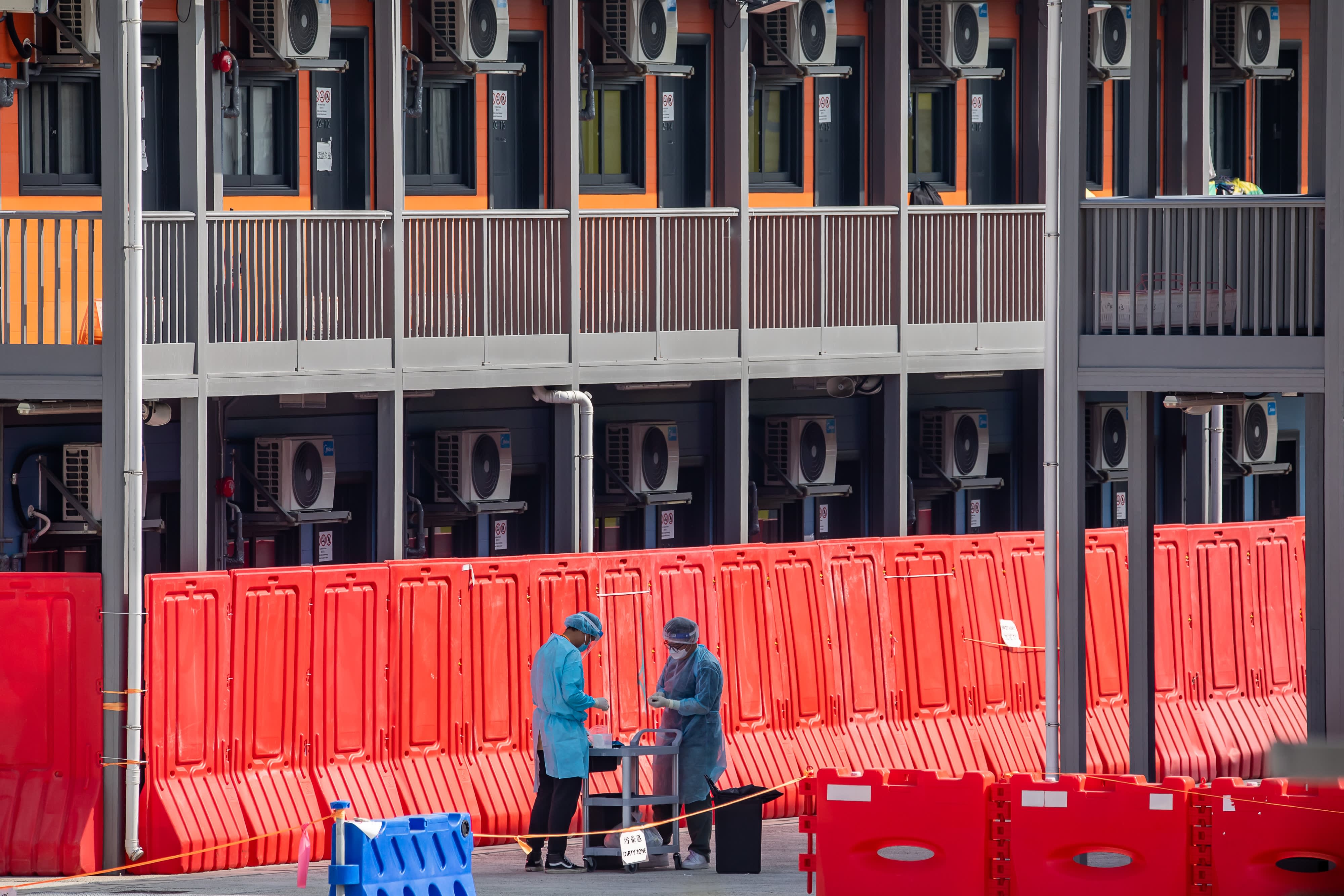
Hong Kong’s strict, zero-Covid approach is the main frustration for foreign businesses operating there, an analyst told CNBC on Tuesday.
The city maintains strict Covid measures – with up to three weeks of mandatory quarantine and other testing requirements — even as authorities elsewhere have loosened similar restrictions.
Asked how local politics and Covid measures affect business confidence in Hong Kong, the founder of publishing and research company Big Brains said the latter is the bigger concern.
“I think it’s more frustration at the moment in Hong Kong, especially among foreign businesses … keeping up with its zero-Covid strategy — and its announcement that it’s going to open to [the] rest of China before it opens to the rest of the world — which is making things pretty frustrating for the business executives here, and their families and their general lifestyle,” Simon Cartledge said.
“It’s been a long time,” he said. “It’s very hard to travel.”
Hong Kong and mainland authorities have worked toward establishing quarantine-free travel between the two regions. China also has a zero-Covid strategy.
This week, Hong Kong again tightened measures as omicron cases surged globally.
The city has clung onto its zero-Covid approach despite having a low number of cases relative to other places in Asia. The city has a 7-day rolling average of 0.72 daily cases per million people as of Dec. 19, compared with 66.75 for Singapore and 1.14 for Japan, according to Our World in Data.
Governments in the Asia-Pacific region including as Singapore and New Zealand initially took an aggressive approach through lockdowns and tight restrictions for most of the pandemic. But many countries around the world have shifted to a “living with Covid” approach as vaccination rates have risen.
But Allan Zeman, chairman of property developer Lan Kwai Fong Group, argued that strict Covid rules have helped Hong Kong stay safe.
“But yet this it has worked in reverse, it has helped Hong Kong because we can walk freely in the street. Everyone wears a mask. That’s very, very important,” he told CNBC’s “Street Signs Asia.” “I think in general, we are safe and it’s different to the horror stories I watch in Europe and the United States at the moment.”
Several cities across Europe are reintroducing restrictions. In the U.K., cases are doubling about every two days as hospitalizations spike in London. On Monday, the U.S. Centers for Disease Control and Prevention said omicron is now the dominant Covid strain in the United States, representing 73% of sequenced cases. Average daily case counts in New York City more than doubled over the week ending Friday Dec. 17.
Zeman said consumer spending has “been incredible” in the past six months as a result of fewer people traveling out of the territory. Hong Kong’s retail sales climbed for the ninth straight month in October, rising 12% from a year earlier to 30.7 billion Hong Kong dollars ($3.94 billion), government data showed in November, according to Reuters.
Attacking the ‘Five Eyes’
Zeman, who was a candidate in this week’s elections for Hong Kong’s Legislative Council, defended changes made to Hong Kong’s electoral system and attacked the “Five Eyes” intelligence-sharing nations for criticizing the overhaul.
The Five Eyes alliance, comprising Australia, Canada, New Zealand, the U.K. and U.S., issued a statement on Monday expressing “grave concern over the erosion of democratic elements” of Hong Kong’s electoral system.
Previously, half of the Hong Kong Legislative Council’s representatives were directly elected by regular Hong Kongers; under new rules, about a fifth were. An Election Committee that previously held only limited powers now hand-picks almost half the Council’s representatives outright, and it screens anyone who wants to run for the other seats.
Zeman, who lost his race but works as an economic advisor to Hong Kong Chief Executive Carrie Lam, said, “I would defend Hong Kong by saying Five Eyes should concentrate on their own countries and look at their systems first, which I don’t think work very well. I believe that this is a new system for Hong Kong that really can work.”




